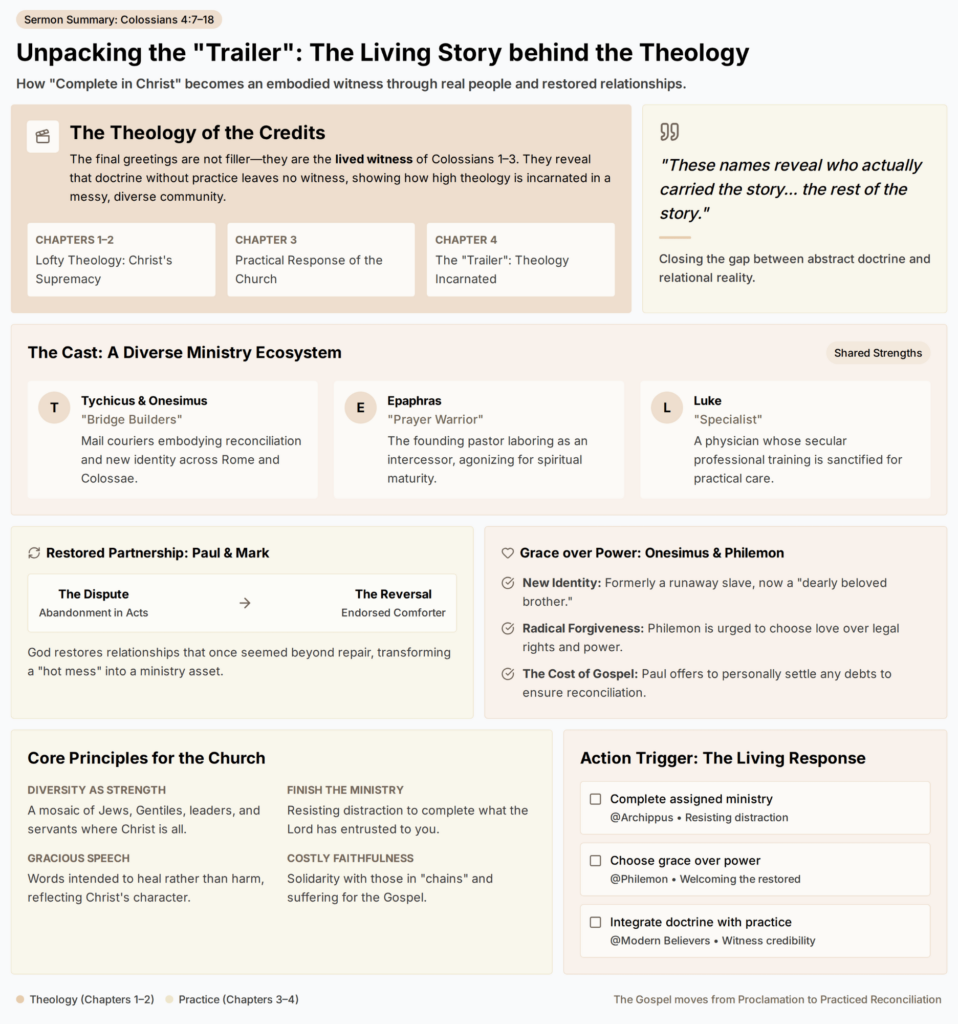Introduction
We are not a people who like to wait.
We don’t like waiting for a promotion when we know we’re capable.We don’t like sitting in traffic when we’re already late.We don’t like standing in long lines when we have somewhere else to be.And we certainly don’t like waiting on unanswered prayers — especially when the need feels urgent and the silence feels heavy.
Waiting feels like inactivity. It feels like delay. It feels like being overlooked.
But Scripture tells a different story.
Again and again, the Bible reminds us that waiting is not wasted time in the hands of a faithful God. What feels like delay to us is often development in His plan. What feels like silence is not absence. What feels like postponement is not neglect.
The same God who calls us to wait is the God who promises:
“The LORD is faithful to all his promises and loving toward all he has made.” (Psalm 145:13)
Today we are going to look at what it means to wait — not with frustration, but with trust — because while waiting is hard, God has never once been unfaithful.
Note:
Every believer lives in tension.
The cross has secured redemption. The crown has not yet been revealed.
- We are forgiven — yet still forming.
- Redeemed — yet still refining.
- Promised — yet still waiting.
We live in what theologians call the “already but not yet.”
The question is not:Has God secured victory?
The question is:How do we live in the space between promise and fulfillment?
Not:
How Long?
But Rather:
Where is God in this season?
As in a hospital, there’s the:
- Emergency Room
- Operating Room
- Waiting Room
A Dilemma of Faith
Romans 8:22-25 NIV We know that the whole creation has been groaning as in the pains of childbirth right up to the present time. 23 Not only so, but we ourselves, who have the firstfruits of the Spirit, groan inwardly as we wait eagerly for our adoption to sonship, the redemption of our bodies. 24 For in this hope we were saved. But hope that is seen is no hope at all. Who hopes for what they already have? 25 But if we hope for what we do not yet have, we wait for it patiently.
Central Text:
Proverbs 13:12 NIVHope deferred makes the heart sick, but a longing fulfilled is a tree of life.
1️⃣ The Promise Is Certain
📖 Example: Abraham — Between Promise and Fulfillment
Genesis 15:5–6
“He took him outside and said, ‘Look up at the sky and count the stars—if indeed you can count them.’ Then he said to him, ‘So shall your offspring be.’ Abram believed the Lord, and He credited it to him as righteousness.”
The promise was breathtaking.
But decades passed. Sarah remained barren. Time marched forward.
And yet Hebrews reflects:
Hebrews 11:8–10
“By faith Abraham, when called to go… obeyed and went… For he was looking forward to the city with foundations, whose architect and builder is God.”
Abraham lived between promise spoken and promise fulfilled.
Cross and Crown Connection
Romans 8:30 says:
“Those He predestined, He also called; those He called, He also justified; those He justified, He also glorified.”
Notice the language — glorified (past tense).
In God’s redemptive plan, the crown is already secured.
Pastoral Truth
The certainty of the promise is not determined by the speed of its arrival.
The cross guarantees the crown — even when decades pass.
2️⃣ The Waiting Is Formative
📖 Example: David — Between Anointing and Throne
1 Samuel 16:13
“So Samuel took the horn of oil and anointed him… and from that day on the Spirit of the Lord came powerfully upon David.”
Anointed king.
But what followed?
- Caves.
- Betrayal.
- Pursuit.
- Years of restraint.
1 Samuel 24:6 (David’s Proverbs 14:12 Moment)
“The Lord forbid that I should do such a thing to my master… or lay my hand on him; for he is the anointed of the Lord.”
- David had the oil.
- He did not yet have the crown.
- The wilderness shaped what the throne would require.
Cross and Crown Connection
Hebrews 12:2 says of Jesus:
“For the joy set before Him He endured the cross, scorning its shame, and sat down at the right hand of the throne of God.”
Even Christ walked from cross to crown through endurance.
Pastoral Truth
Waiting is not wasted.
The wilderness is not punishment — it is preparation.
God forms the soul before He reveals the crown.
3️⃣ The Faith Is Refined
📖 Example: Joseph — Between Dream and Destiny
Genesis 37:5
“Joseph had a dream…”
But then:
- Betrayed by brothers
- Sold into slavery
- Falsely accused
- Forgotten in prison
For thirteen years.
Yet later Joseph declares:
Genesis 50:20
“You intended to harm me, but God intended it for good to accomplish what is now being done, the saving of many lives.”
The delay refined his theology.
Cross and Crown Connection
Peter writes:
1 Peter 1:6–7
“Though now for a little while you may have had to suffer grief in all kinds of trials. These have come so that the proven genuineness of your faith
4️⃣ The Journey has a Destination
Israel — Between Exodus and Promised Land
📖 References:
- Exodus 12–14 – Delivered from Egypt
- Numbers 14 – Wilderness wandering
- Joshua 3–4 – Crossing into the land
- Deuteronomy 8:2
The Red Sea proved deliverance. But the wilderness stretched long.
They were:
- freed,
- but not yet settled;
- redeemed,
- but not yet resting.
Israel lived between liberation and inheritance.
Pastoral insight:Freedom does not immediately feel like fulfillment.
5️⃣ Joy Comes in the Morning
The Disciples — Between Cross and Resurrection Glory
📖 References:
- John 19 – Crucifixion
- Luke 24:21 – “We had hoped…”
- Acts 1:6–8 – Waiting for the Spirit
- Hebrews 12:2 – “For the joy set before Him…”
The cross secured redemption. The crown (kingdom fully revealed) had not yet appeared.
Even after resurrection, they waited again for Pentecost.
They lived in the tension of promise fulfilled and promise unfolding.
Pastoral insight:Even resurrection does not remove waiting from the life of faith.
6️⃣ God Can Change Any Circumstance
Paul — Between Conversion and Glory
📖 References:
- Acts 9 – Conversion
- 2 Corinthians 4:7–18 – Affliction and perseverance
- 2 Timothy 4:7–8 – “Crown of righteousness”
Paul knew Christ. He knew glory awaited. But he endured:
- beatings,
- imprisonment,
- shipwreck,
- rejection.
He wrote of future glory while suffering present hardship.
Paul lived between salvation secured and crown received.
Martin Luther King Jr.
His “dream” was a vision of:
- A nation living out its creed that “all men are created equal.”
- Children judged by the content of their character rather than the color of their skin.
- Former enemies sitting together in brotherhood.
- Justice rolling down “like waters” (echoing the prophet Amos).
King understood that the country was living in an “in-between” moment—freedom declared, but not yet fully realized. His dream pointed toward a future reconciliation that required courage, nonviolence, and persistent hope.
📖 The Church Lives in the Long Saturday
1️⃣ Friday: The Cross — Redemption Accomplished
On Friday:
- Sin was atoned for.
- The veil was torn.
- The price was paid.
Jesus declared:
“It is finished.” (John 19:30)
Redemption was secured.
2️⃣ Sunday: The Crown — Glory Revealed
Sunday brought:
- Resurrection.
- Vindication.
- Victory over death.
And ultimately there will be another Sunday — the full unveiling:
“When Christ appears, then you also will appear with Him in glory.” (Colossians 3:4)
That is the crown.
3️⃣ Saturday: The In-Between — The Silence
But Saturday…
The body lay in the tomb. The promise was true. The disciples did not yet see it.
Hope felt fragile. Confusion was real. The kingdom did not look victorious.
Now step back.
The Larger Saturday
Since the Ascension (Acts 1), we have been living in a prolonged Saturday.
Jesus has:
But we are still waiting for:
“This same Jesus… will come back in the same way you have seen Him go into heaven.” (Acts 1:11)
We live in:
- redemption accomplished,
- kingdom inaugurated,
- but glory not yet consummated.
Theologians call this the “already and not yet.”
We are Saturday people.
What Makes Saturday Hard?
Saturday is marked by:
• Promise without visible completion • Victory declared but not fully displayed • Faith required without physical proof • Groaning creation (Romans 8:22–23) • The tension of waiting
Paul says:
“For in this hope we were saved. But hope that is seen is no hope at all. Who hopes for what they already have? But if we hope for what we do not yet have, we wait for it patiently.” (Romans 8:24–25)
That is Saturday theology.
Why This Matters Pastorally
If the Church misunderstands Saturday, believers will:
- become disillusioned when suffering continues,
- assume something is wrong when waiting persists,
- think faith should eliminate tension,
- equate delay with divine absence.
Saturday is not failure. It is the appointed season between fulfillment and unveiling.
The Beauty of the Long Saturday
Saturday proves:
- The cross was real.
- The crown is coming.
- God’s timing is deliberate.
- Faith grows in the in-between.
And here is something profound:
The disciples on that first Saturday thought the story had stalled.
But in reality, resurrection was only hours away.
Likewise:
The Church may feel the weight of delay. But glory is not delayed — it is scheduled.
Remember
“We are not waiting for victory to be decided — we are waiting for victory to be revealed.”
Remember The Anticipation of the Horse (The announcement before the Gate Opens:
“The tomb is empty, but the trumpet has not yet sounded.”
Closing:
Proverbs 13:12 NIV Hope deferred makes the heart sick, but a longing fulfilled is a tree of life.
Between Eden and Heaven — The Grand “In-Between”
The story of Scripture unfolds between two gardens.
🌿 The Beginning — Eden
Eden was the place of perfect fellowship between God and humanity. There was no sin, no death, no separation. Adam and Eve walked with God in innocence and harmony.
But through disobedience, sin entered the world. The result was broken relationship, suffering, toil, and mortality. Humanity was expelled from the garden, and the long story of redemption began.
🌍 The Long Middle — Promise and Redemption
From the fall onward, the Bible tells the story of God pursuing restoration:
- The covenant with Abraham
- The formation of Israel
- The giving of the Law
- The prophets calling people back to faithfulness
- The coming of the Messiah
In the fullness of time, came as the “second Adam.” Through His life, death, and resurrection, He defeated sin and secured redemption. Yet the world still bears the effects of the fall. We live in what theologians call the “already but not yet”—redeemed, but not fully restored.
🌅 The End — Heaven at Christ’s Return
When Christ returns, Scripture points to a renewed creation described in 21–22. There we see imagery strikingly similar to Eden:
- God dwelling with His people
- No more death, mourning, or pain
- The tree of life restored
- A river flowing from God’s throne
The story ends not in a garden alone, but in a garden-city—a perfected, eternal dwelling place where God and humanity are fully reconciled.
The Meaning of the “In-Between”
Between Eden and Heaven is the grand narrative of redemption. It is the story of:
- Fall → Promise
- Exile → Return
- Cross → Crown
- Brokenness → Restoration
We live in that middle space—awaiting the full renewal of all things, walking by faith until the day when what was lost in Eden is fully restored in glory.
Where This Touches Us Personally
This may resonate deeply because:
- You are carrying responsibilities.
- You are waiting for completion in several areas.
- You feel the tension of unfinished work.
And yet:
The cross assures you. The crown awaits you. Saturday forms you.
You are not behind. You are in the middle of God’s redemptive timeline.
Help Encourage others by sharing:




